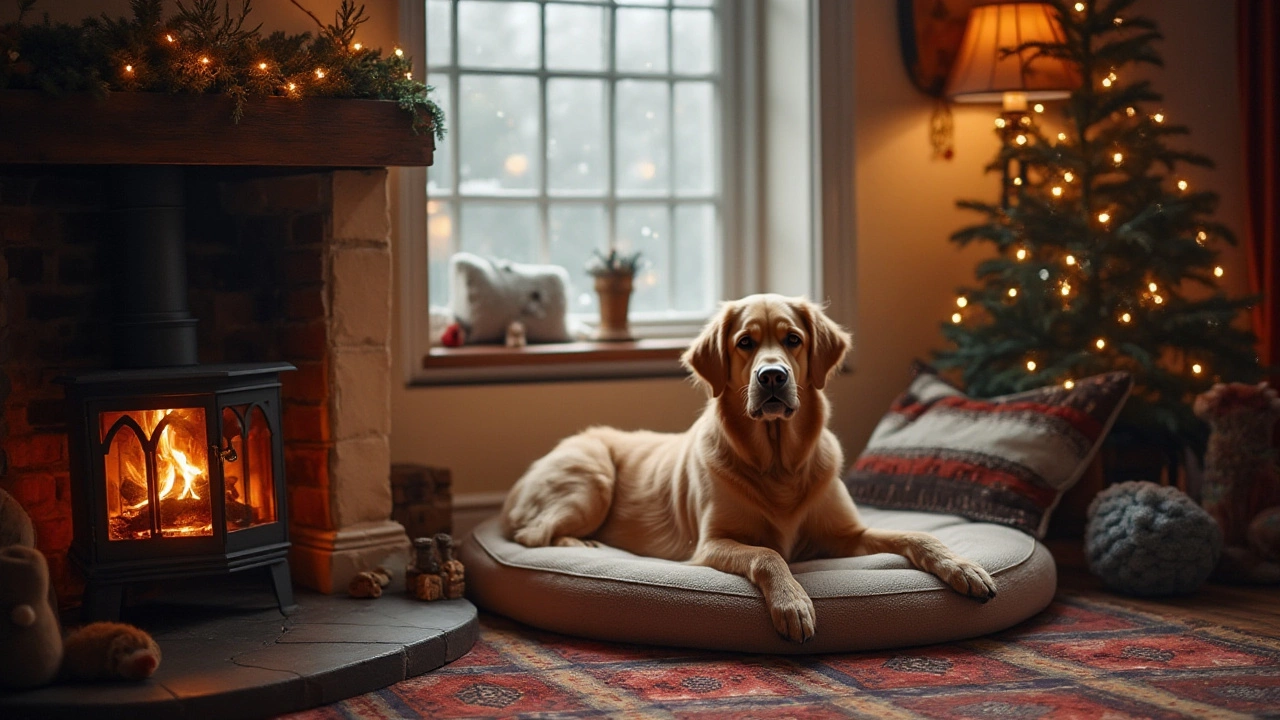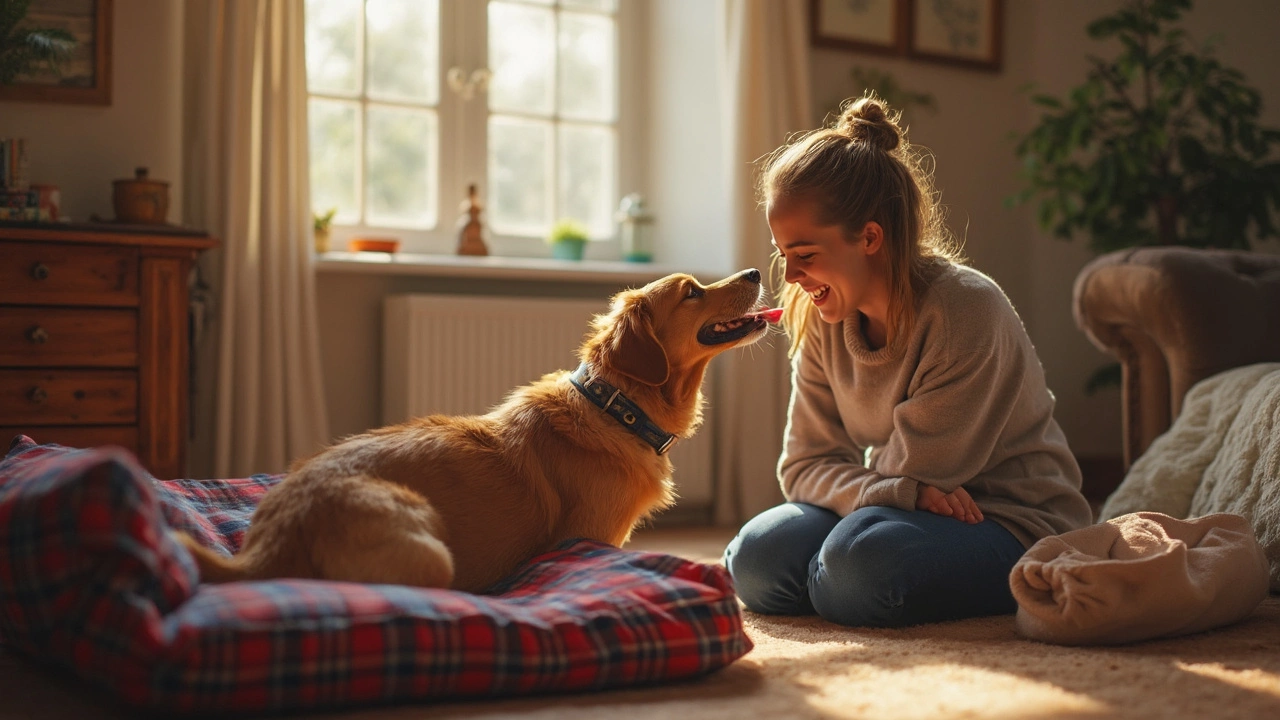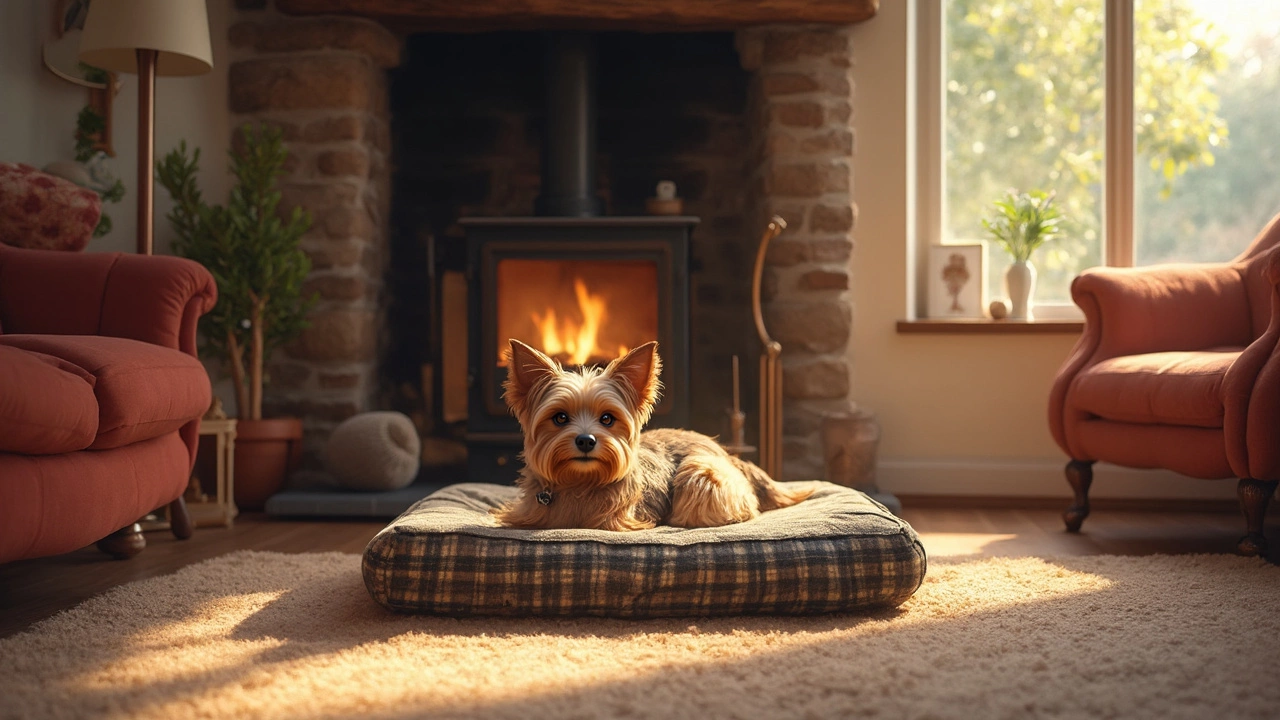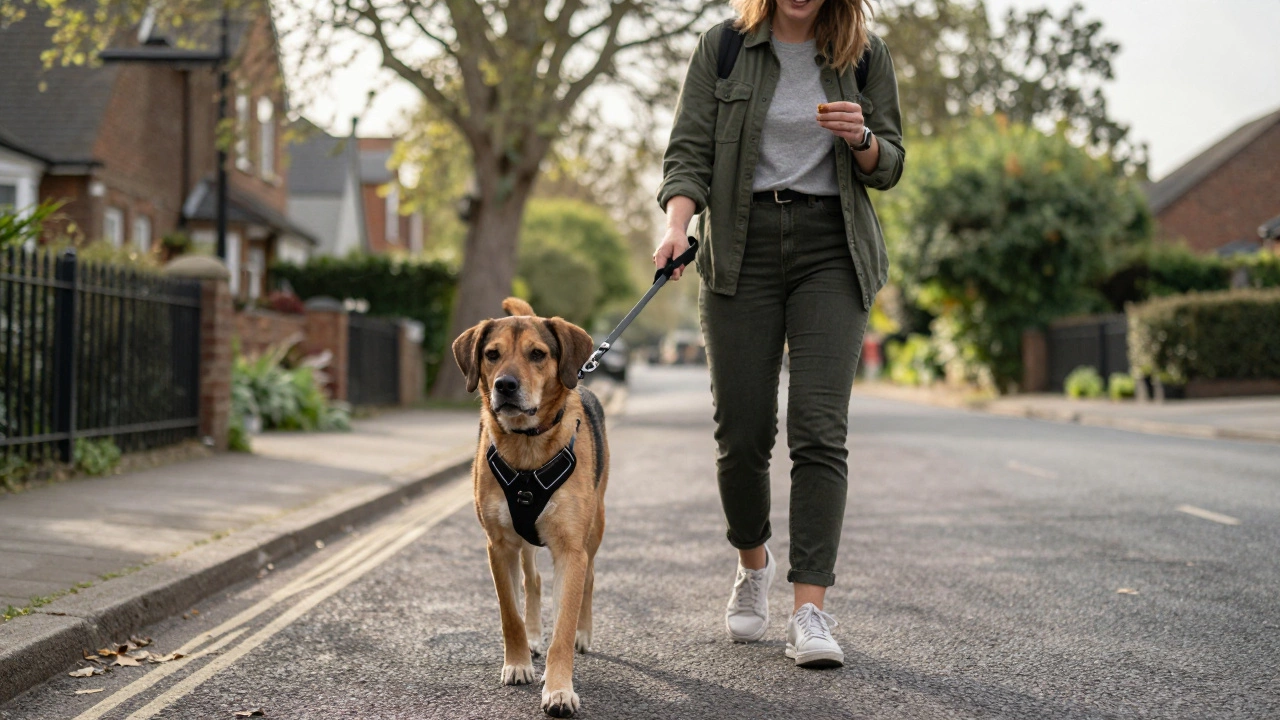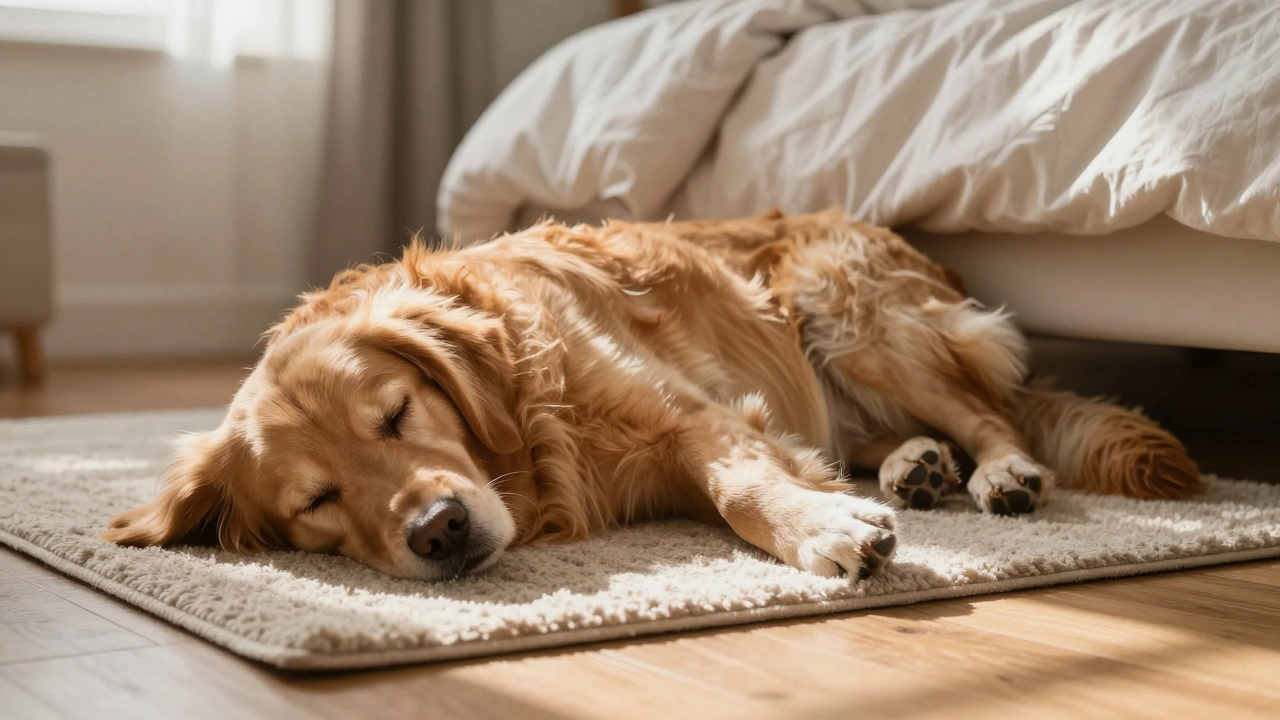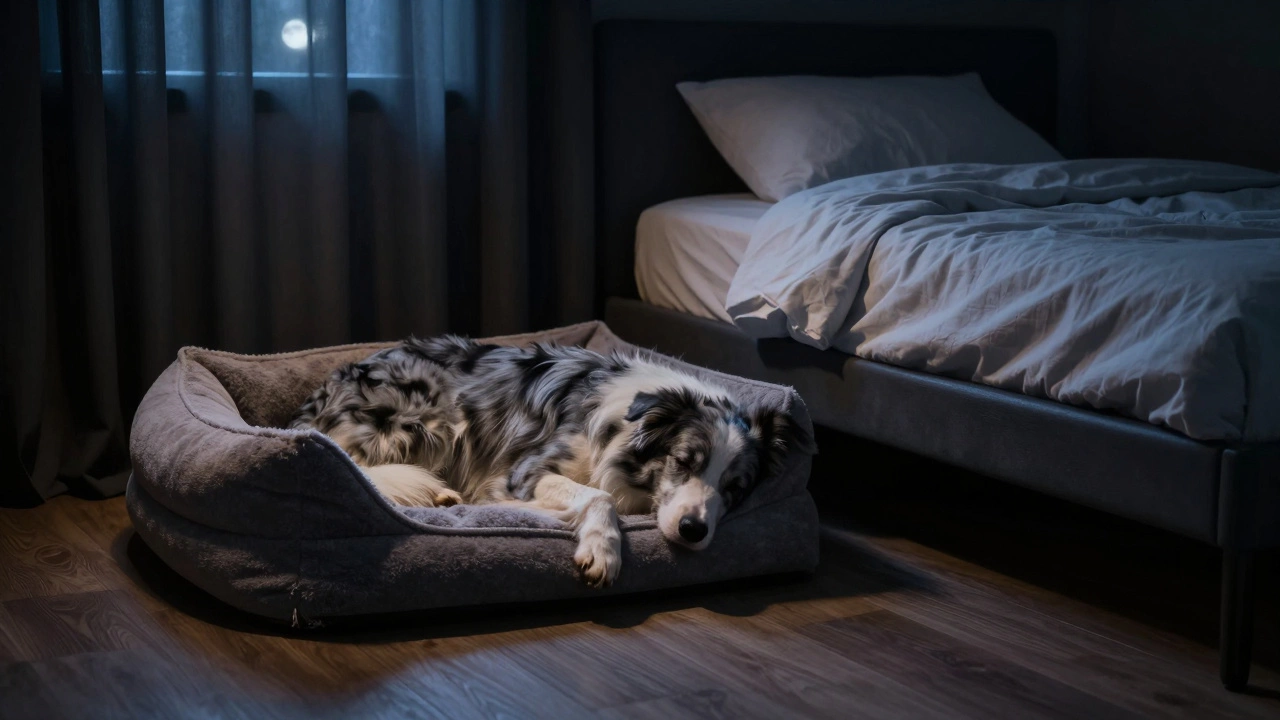When it comes to picking out a bed for your furry friend, the decision might be more complicated than it seems. Does the shape of the bed really matter? Interestingly, the choice between a round or a square bed can make a difference in your dog's comfort and sleep quality. Just like humans have their favored sleeping positions, dogs too have their preferences which might influence their choice of bed.
Understanding these preferences not only helps provide a cozy spot for your pet but also contributes to their overall well-being. In this article, we dive into whether dogs lean towards round or square beds, and what factors might influence their choice. Whether you have a tiny terrier or a sprawling Great Dane, it's worth considering how the shape of their bed can enhance their naptime bliss.
- The Canine Perspective: Does Shape Matter?
- Round Beds: Comfort and Security
- Square Beds: Space and Versatility
- Observations from Dog Owners
- Choosing the Right Bed for Your Dog
The Canine Perspective: Does Shape Matter?
When selecting a bed for your pet, the shape might not be the first thing that comes to mind. Yet, it's quite intriguing how the geometry of a dog bed can influence your pet's comfort and contentment. Dogs, with their varied behaviors and instincts, may respond differently to shapes when it comes to their rest. Just like us, dogs have individuality, which means that one might prefer to sprawl while another curls up tightly, seeking warmth or security. Understanding these nuances is crucial in ensuring that your pet enjoys deep, restful sleep, which plays a vital role in their overall well-being. Dogs' instincts play heavily into where and how they choose to rest. For instance, in the wild, dogs often curl up tightly in a den to retain warmth and protect vulnerable organs. This instinct might lead some dogs to prefer a snug, round bed that mimics that protective, cocoon-like environment.
On the other hand, some dogs, particularly larger breeds, might appreciate the sprawling space a square or rectangular bed offers. For these dogs, having room to stretch might bring more relaxation after a day of play. "Dog beds are not just about aesthetics but about catering to these primitive needs," as Dr. Emily Bach, a well-known veterinarian and animal behaviorist, points out. She says, "Understanding that some dogs may associate roundness with protection and squares with space can help owners make informed purchases." Providing an environment that mimics natural instincts not only comforts dogs but can also reduce anxiety and promote better sleep quality.
To get a real grasp of what shape might suit your pet's needs, think about their typical sleeping position. Does your companion often curl into a ball, or do they stretch out flat? Some researchers suggest keeping an eye on how your dog naps naturally in various environments may give you clues. Dogs that prefer curling might opt for round beds with bolsters, which can offer support akin to a den. Those who reject constraints might love a large, square bed that presents wide spaces for endless lounging options. These choices can directly impact their comfort level, correlating with their physical and emotional health.
It's more than just choice—it's also about the preferences driven by comfort and ancestral behavior. Certain circumstances might also push a pet to prefer a specific shape. For example, in colder climates, round beds with high walls can preserve heat, making them more appealing. A spaniel curled up in a cozy, round bed in front of a fireplace could be the epitome of doggy contentment. Meanwhile, on a warm day, a Labrador Retrievers might find solace on a sprawling, cool mat. Knowing these subtleties allows us to mirror our love and care through thoughtful choices.
The importance of correctly picking between round or square shapes is not just palpable in how our pets rest but even in how they perceive their resting environment. Dogs without props that meet their preferences might suffer fragmented sleep or seek alternative sleeping arrangements, such as couches or human beds. A study by the Pet Food Manufacturer's Association (PFMA) indicates that a well-chosen dog bed can improve a pet's mood and reduce stress by up to 30%. Given the role sleep plays in healing and maintaining energy levels, it's essential that dogs are provided with the ideal space that serves their instinctual needs.
Round Beds: Comfort and Security
When you think of the perfect spot for a nap, a round bed might not be the first thing that comes to mind. However, for our canine companions, a circular shape can offer a unique blend of comfort and security. The design of a round bed resembles a cozy nest, which taps into a dog's ancestral roots. Dogs are natural den animals, and the snug, enveloping shape of a round bed can replicate the safety of a den or the furry embrace of sleeping alongside pack members.
The contour of a round bed encourages dogs to curl up, a position that keeps their body heat contained and offers an added sense of warmth, making it especially appealing in colder months. This snug fit may also reduce anxiety, helping dogs to feel more secure and relaxed, much like swaddling calms a restless infant. Anecdotal evidence from pet owners often highlights how dogs tend to burrow into these beds, demonstrating a preference for surroundings that hug their form.
From a practical viewpoint, round beds can fit snugly into various living spaces, offering flexibility for placement in both large rooms and small nooks. This adaptability means pet owners can keep their dogs near the heart of home activity, whether that's a bustling kitchen or a sun-drenched corner of the living room. The ease with which these beds can be tucked into a corner or under a table only adds to their appeal.
"Dogs feel safer in enclosed spaces because it mimics the dens of their wild ancestors," explains Dr. Sarah Nelson, a renowned animal behaviorist. "A round bed's structure can give dogs cues that help them settle and relax much more effectively."
There's also variety in how round beds accommodate different sleeping styles. While some dogs insist on curling into the tightest ball, others might prefer to stretch out a bit. Many dog beds come equipped with bolster edges, providing something firm for dogs to lean against, which can be excellent for those that occasionally like to sprawl but still want that sense of security on one side. Fabric choice is essential here as well, with some round beds offering materials like faux fur or sherpa that appeal to a dog's tactile senses, adding an additional layer of comfort that caters to their instincts.
In addition to these benefits, it's worth mentioning that round beds often come with removable, washable covers, making them a practical choice for pet owners. Maintenance is easy, and they can be kept fresh with minimal effort. This feature cannot be overlooked, as a clean bed is imperative to your dog's comfort and health. Decorative touches aren't missed either; round beds often come in a delightful array of colors and patterns, striking a balance between functionality and style that integrates with your home decor.
Still, it’s important to recognize that while many dogs thrive with the secure feeling of a round bed, not all will prefer them. Observing your dog's personal habits and rest positions remains the best guiding principle for choosing between the myriad options available. But for many dogs, the choice of a round bed aligns perfectly with their instinctual needs, providing a blend of warmth, security, and comfort they instinctively crave.
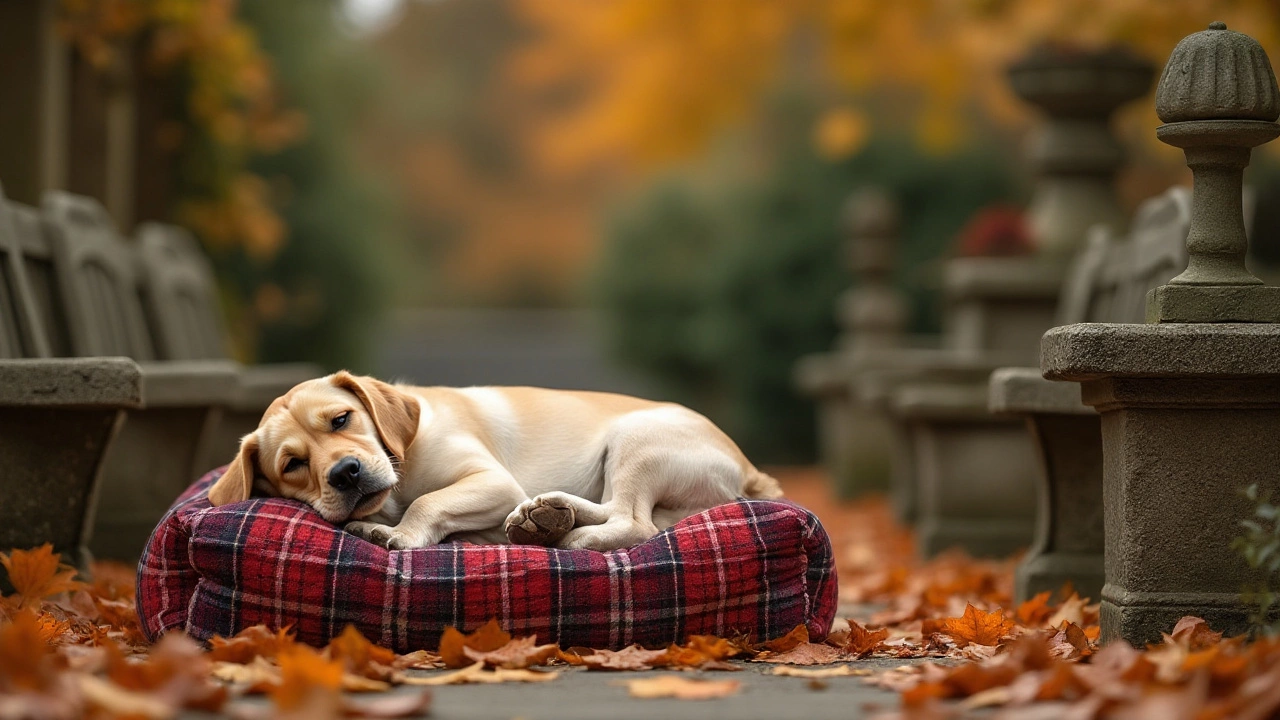
Square Beds: Space and Versatility
Square beds offer a generous amount of space for dogs, making them particularly appealing for pups who enjoy stretching out every inch of their bodies during naps. Imagine a playful Labrador who flops with joyous abandonment, spreading out in all directions. With a square bed, there's room to spare, accommodating those spirited sprawls. Beyond just space, square beds tend to have a design versatility that can adapt to different room layouts and serve multiple purposes. This means whether it's tucked neatly into the corner of a living room or serving as a centerpiece in a dog's dedicated room, the square shape can seamlessly blend into the home decor without looking out of place.
One of the key advantages of a square bed is its adaptability. Many square dog beds come with removable and washable covers, reflecting the practical needs of pet owners. This practicality is paired with a sturdiness that ensures these beds can withstand the rigorous demands of enthusiastic dogs. Consider a shaggy sheepdog returning from a muddy romp, which underlines the importance of having an easy maintenance solution. Another appealing feature of square beds is they often come with raised edges or bolsters, which many dogs appreciate as they give a sense of security, acting like a pillow to rest their weary heads.
Interestingly, some pet experts suggest that dogs who prefer to have their own 'territory' might be more inclined towards square beds. According to an article by PetMD, a square sleeping area provides definitive boundaries, which some dogs find reassuring.
Catherine Ashe, DVM, notes, "A dog's need for boundaries and defined space is often overlooked, yet it's crucial for their sense of security."This psychological aspect highlights why some canines show a marked preference for square-shaped sleeping arrangements. It satisfies an innate need for clearly defined living quarters. Thus, a square bed offers not only physical space but also a kind of mental comfort.
For pet owners who enjoy variety, square beds open a world of customizable options. They can be layered with thermal blankets for added warmth during chilly winters, or adorned with cool cotton sheets in the sweltering summer months. This versatility extends beyond just the aesthetic appeal, as it allows pet parents to tailor their pet's bed to suit seasonal needs, much like how humans adjust their bedding. Moreover, the structure of these beds can often accommodate orthopedic inserts, transforming a simple square shape into a haven for older dogs with joint issues.
When it comes to the material selection, square beds frequently offer choices that enhance both form and function. From eco-friendly fabrics to memory foam bases, they cater to a range of eco-conscious or health-focused buyers. This vast array of options allows the dog bed decision to become not just a purchase but an investment in a pet's well-being. For those pondering the perfect resting spot for their four-legged companions, a square bed can provide the right balance of space, comfort, and adaptability, all wrapped neatly in a shape that pets seem to appreciate.
Observations from Dog Owners
Dog owners, the dedicated custodians of canine happiness and comfort, have quite a few stories to share when it comes to bed preference. Over years of observing their pets, many have noted that the shape and style of a bed can play a role in how much time their dog spends there. Some owners recall dogs instinctively curling up in round beds, their bodies naturally conforming to the shape, providing a sense of safety akin to a nest. This circular cocoon mirrors the instinctual behaviors of wild ancestors who would dig and circle to create a snug resting spot. Anecdotal evidence from these keen observers suggests that round beds might be particularly favored by dogs who tend to curl up when they sleep, especially smaller breeds or those who seek extra warmth and security.
On the flip side, there are plenty of owners who have watched their dogs stretch luxuriously over square or rectangular beds. These owners often find the open expanse of a square bed advantageous, especially for dogs that like to sprawl or for those with larger breeds. In such beds, dogs can alternate positions freely without feeling constrained, which is particularly important for maintaining joint health in large or senior dogs. Indeed, a square bed can offer versatility that fits well with the needs of these dogs.
According to a recent survey by the American Pet Products Association (APPA), 41% of pet owners said their dogs showed a clear preference for a specific type of bed, indicating that comfort is a significant factor in this choice.
For many dog owners, the decision also boils down to observing where their dog seems most content. While one can reason through the advantages of each shape, ultimately, individual preferences reign supreme. Owners often find themselves purchasing a variety of options, experimenting to see which bed their pup gravitates towards. Interestingly, some dogs will alternately use both types based on their mood or the season, curling for warmth in a round bed during the colder months, and spreading out on a square bed when it’s warm.
In an attempt to pinpoint patterns, some owners have categorized preferences by breed or age, leading to informal yet insightful conclusions. Smaller breeds and younger pups might lean towards round beds, while aging dogs or those with arthritis may favour square ones for the freedom to move. Created to suit varied lifestyles, dog beds are more than just sleeping pads—they are part of the holistic care pet owners provide, reflecting an understanding of their dogs' unique behaviors and comforts.
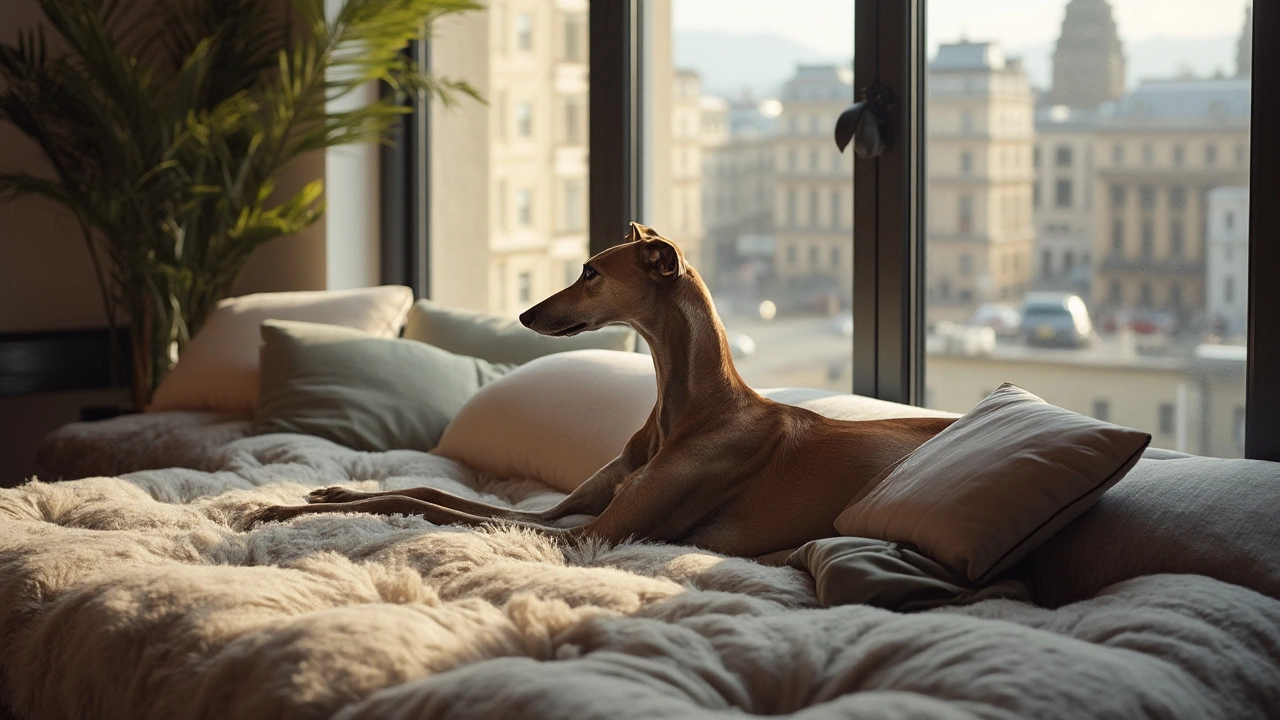
Choosing the Right Bed for Your Dog
Finding the perfect bed for your dog is more than just about aesthetics. It's about ensuring your beloved pet's comfort and happiness, which can be influenced by more factors than you might initially consider. First and foremost, you should pay attention to your dog's size and sleeping habits. For instance, if your dog loves to curl up, a round bed might feel like a cozy, secure haven. On the other hand, if your dog likes to sprawl out, a square bed with plenty of room might be a better choice.
Consider your dog's age and health as well. Older dogs or those with joint issues might benefit from orthopedic beds designed to provide extra support. Memory foam is one popular option that can help relieve pressure points, leading to a more restful sleep. Puppies, with their boundless energy and potential for accidents, may do better with beds that have washable covers. These practical aspects can make a significant difference in the everyday life of a dog owner and provide peace of mind.
Choosing a bed also involves considering where it will be placed in your home. Is it meant to fit snugly in a corner, or is it the centerpiece of a room? Matching the bed size with the designated space can enhance your home’s aesthetics while ensuring your pet has the comfort they deserve. Don't forget about material durability, especially if your pet has a habit of chewing things up. High-quality fabric will withstand wear and tear in the long run.
Personal Preferences and Lifestyle
Every dog has its preferences, developed uniquely based upon their personality. Some dogs might prefer a nest-style bed with raised edges offering a sense of security, while others enjoy a flat surface that allows them to stretch uninhibited. Observing your dog's behavior can offer clues to their preferred bed type. Pay attention to where they choose to rest - it might tell you whether they like the coziness of a cramped space or the freedom of open areas.
Insights from Experts
A quote from veterinarian Dr. Aisha White reads,
"The right bed can greatly improve a dog’s sleep quality and overall health. Owners should aim to find one that aligns with their pet’s size and favorite sleeping positions."Her words echo the necessity of considering a combination of factors when selecting a bed to ensure that your dog gets the best experience possible. Researching your dog’s breed characteristics concerning sleeping habits can also be enlightening, given that large breeds such as Great Danes often need more substantial resting places compared to smaller breeds.
Finally, it’s essential to note the increasing trend towards customizable dog beds. Some companies now offer options for tailor-made solutions that allow for selecting materials and shapes that suit your dog’s exact needs. This can be a worthwhile investment, ensuring your dog has a bed that not only matches its comfort criteria but also complements your home's interior design.

